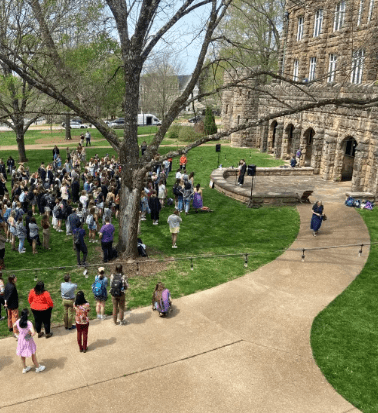
Understanding Today’s College Student Challenges
Today’s college students face unprecedented challenges that extend beyond academic demands. From navigating complex social environments to managing their mental health, students need multifaceted support systems that address their holistic wellbeing. The gut-brain connection plays a crucial role in cognitive functioning and mental health, offering innovative pathways for supporting student success beyond traditional interventions.
The Neurobiological Foundation of Student Success
Research has transformed our understanding of learning, attention, and mental health. For students struggling with focus and concentration, understanding the bidirectional communication between our digestive system and central nervous system provides essential context for effective intervention. Students exploring how to treat ADHD naturally often benefit from approaches that address this gut-brain axis through targeted nutrition and lifestyle modifications.
The microbiome’s influence on neurotransmitter production directly impacts mood regulation, stress response, and cognitive performance—all critical factors in academic success. By incorporating holistic micronutrition approaches, students can address the biological foundations of attention challenges, anxiety, and mood fluctuations that frequently interfere with academic performance.
Specialized Support for Neurodivergent Students
College presents unique challenges for neurodivergent students who must navigate environments designed primarily for neurotypical learners. Specialized approaches for students with ASD and autism spectrum conditions recognize the sensory, social, and executive functioning differences that impact academic experiences. Similarly, comprehensive resources for ADHD and ADD provide strategies that leverage these students’ distinctive cognitive profiles.
The intersection of neurodevelopmental conditions with mood disorders creates complex challenges requiring integrated approaches. Resources addressing anxiety disorders with ADHD and depression with autism help students understand how these conditions interact and amplify each other. Students with learning differences benefit from specialized support for dyslexia and ADHD, addressing the overlapping challenges these conditions present.
For students experiencing neurodivergent burnout from the sustained effort of navigating neurotypical academic environments, resources on navigating neurodivergent burnout provide essential strategies for sustainable academic engagement. The process of unmasking neurodiversity allows students to conserve cognitive resources previously devoted to camouflaging their natural cognitive styles.
Advanced Assessment and Intervention Technologies
Innovative assessment technologies transform how we understand and support cognitive differences. QEEG brain mapping enables personalized intervention planning based on individual neurological patterns, identifying specific areas where support is needed. For students considering this approach, resources explaining what QEEG brain mapping feels like demystify the process.
Understanding the distinctions between various neurotechnology interventions helps students make informed decisions about their care. Resources clarifying the differences between QEEG, neurofeedback, and other approaches provide essential context for evaluating treatment options. These technologies offer precision in addressing the specific neurological patterns underlying attention difficulties, emotional regulation challenges, and executive functioning deficits.
Body-Based Approaches to Academic Success
Cognitive challenges frequently manifest physically, with stress responses and attention difficulties showing up as somatic experiences. Somatic Experiencing helps students develop greater awareness of their bodily responses to academic pressure, building their capacity to track and regulate these physiological states. This approach, developed by Dr. Peter Levine, builds emotional resilience through nervous system regulation.
For students with trauma histories affecting their academic performance, Lifespan Integration therapy offers a gentle approach to healing early experiences that may be interfering with current functioning. Additional trauma-informed modalities like brainspotting and EMDR provide effective interventions for processing experiences that may be blocking academic progress.
By integrating parts-based therapy approaches, students develop self-awareness of internal conflicts that may be sabotaging their academic efforts. This internal family systems approach helps reconcile competing motivations and needs, creating greater internal alignment for academic success.
Supporting Specific Student Populations
Different student populations face unique challenges requiring tailored support. Resources for major universities like University of Alabama and Auburn University address the specific pressures faced at these institutions. Similarly, support for students at smaller colleges like Montevallo and Jacksonville State addresses the unique cultural contexts of these environments.
Urban campuses present distinct challenges, with specialized resources for UAB students and Samford University students addressing these environments. Support for community college students recognizes the additional life demands often facing these learners, who frequently balance academic responsibilities with work and family obligations.
Addressing Common College Mental Health Concerns
College students frequently encounter specific mental health challenges that impact academic performance. Targeted approaches address common issues including anxiety and panic disorders that interfere with test performance and social functioning. Resources for depression and mood disorders help students maintain motivation and engagement despite emotional challenges.
Specific support for academic and school performance issues addresses the practical aspects of succeeding in higher education. Resources targeting executive functioning help students develop organizational systems and time management approaches aligned with their cognitive styles.
Students experiencing life transitions may benefit from resources addressing grief and loss, helping them navigate emotional challenges while maintaining academic momentum. Additional support for specialized concerns like eating disorder recovery addresses the complex interaction between body image, academic pressure, and mental health.
Integrating Metacognition and Mindfulness
Developing metacognitive skills—the ability to observe and regulate one’s own thought processes—provides powerful tools for academic success. Resources on metacognition for healing help students develop this crucial capacity for self-observation and self-regulation. Complementary approaches through meditation and mindfulness offer practical techniques that students can integrate into daily routines.
These approaches help students develop the internal observer capacity necessary for recognizing unhelpful thought patterns and emotional responses that interfere with learning. By cultivating present-moment awareness, students can engage more fully with academic material while reducing the anxiety and rumination that often accompany academic challenges.
Supporting Complex Neurodivergent Presentations
Many neurodivergent students experience multiple overlapping conditions that require integrated approaches. Resources addressing conditions like Ehlers-Danlos syndrome with autism and ADHD explore the interconnection between physical and neurological challenges. Approaches that embrace neurodiversity help students leverage their unique cognitive profiles rather than attempting to conform to neurotypical expectations.
For students with complex presentations, understanding how these conditions interact is essential for developing effective support strategies. Rather than addressing each condition in isolation, integrated approaches recognize the synergistic effects of overlapping neurodevelopmental differences, creating comprehensive support frameworks.
Comprehensive Support Through Teletherapy
For students unable to access in-person services, teletherapy for college students provides comprehensive mental health support regardless of location. These services are particularly valuable for students at satellite campuses or those balancing academic responsibilities with work or family obligations.
Regional teletherapy resources for locations throughout Alabama, including Huntsville, Birmingham, and Mobile, ensure that geographic location doesn’t limit access to specialized support. By leveraging technology, these services make evidence-based interventions accessible to students regardless of where they study.
The Future of Student Support
The most effective student support integrates biological, psychological, and social approaches, addressing the whole person—from gut health to cognitive functioning to emotional wellbeing. This comprehensive framework creates conditions where all students can thrive academically and personally.
As our understanding of neurodiversity continues to evolve, approaches that embrace cognitive differences rather than pathologizing them will become increasingly central to effective student support. For college students navigating the complex demands of higher education, this integrated approach offers the sustainable foundation needed for lasting success.
Alabama College Resources
Taproot Therapy Collective offers specialized support for students attending colleges and universities throughout Alabama. We understand that each campus has its own unique culture, pressures, and resources, and we tailor our approach accordingly.
Major Universities
For students at Alabama’s largest universities, we offer comprehensive mental health support:
- University of Alabama: Specialized support for students dealing with the pressures of attending a large, competitive university.
- Auburn University: Targeted therapy services for Auburn students facing academic pressure, social challenges, or mental health concerns.
- University of Alabama at Birmingham (UAB): Specialized support for UAB students, with particular expertise in helping those in demanding healthcare programs.
- Samford University: Tailored therapy services for students at this private Christian university, with sensitivity to faith-based concerns.
State Universities & Colleges
We also provide specialized support for students at state universities and colleges across Alabama:
- Jacksonville State University: Teletherapy services for JSU students dealing with academic stress, relationship challenges, or mental health concerns.
- University of Montevallo: Support for students at this public liberal arts university, with sensitivity to the unique pressures of arts and humanities programs.
- Troy University: Both in-person and teletherapy options for Troy students, including support for military-affiliated students.
- University of South Alabama: Teletherapy services for USA students, with particular expertise in supporting those in healthcare programs.
- University of Alabama in Huntsville: Specialized support for UAH students, with understanding of the unique pressures faced by those in STEM fields.
- Auburn University at Montgomery: Tailored therapy services for AUM students balancing academic demands with work and family responsibilities.
Community Colleges
Community college students face unique challenges, including balancing academics with work, family responsibilities, and financial pressures. We offer specialized support for students at:
- Jefferson State Community College: Both in-person and teletherapy options for Jeff State students juggling multiple responsibilities.
- Lawson State Community College: Tailored therapy services for Lawson State students, with sensitivity to the unique challenges faced by community college students.
- Shelton State Community College: Support for Shelton State students dealing with academic, personal, or mental health challenges.
- Gadsden State Community College: Therapy services for Gadsden State students, with understanding of the unique pressures of community college life.
Historically Black Colleges and Universities (HBCUs)
Alabama has a rich tradition of historically Black colleges and universities (HBCUs), and we offer culturally sensitive, trauma-informed care for students at these institutions:
- Alabama State University: Specialized support for ASU students, with understanding of the unique cultural and social context of HBCU experience.
- Alabama A&M University: Tailored therapy services for A&M students, with sensitivity to the unique pressures and strengths of the HBCU community.
- Tuskegee University: Support for Tuskegee students, with respect for the university’s rich history and traditions.
- Miles College: Therapy services for Miles College students, with understanding of the unique challenges and strengths of small HBCU communities.
Comprehensive Support for All Alabama College Students
For students at any college or university in Alabama, we offer a comprehensive teletherapy program that makes quality mental health care accessible regardless of location. Our teletherapy services are designed to accommodate busy schedules, limited transportation, and the need for privacy and confidentiality.
In addition to our college-specific resources, we offer therapy services in numerous communities throughout Alabama, making it easier for students to access care whether they’re living on campus or commuting from home. From Birmingham to Huntsville, Mobile to Montgomery, we’re committed to making mental health support accessible to students across the state.
Bibliography
Blackstock, J. (2023). The Gut-Brain Connection: Holistic Support for ADHD and Academic Success. Retrieved from https://gettherapybirmingham.com/how-to-treat-adhd-and-attention-deficit-disorder-naturally/
Beech, H. (2024). Micronutrition Approaches for Mental Health in College Students. Retrieved from https://gettherapybirmingham.com/treatments/holistic-micronutrition-for-mental-health-issues/
Hayes, P. (2023). Somatic Experiencing and College Student Success. Retrieved from https://gettherapybirmingham.com/somatic-experiencing-dr-peter-levine/
Mishalanie, J. (2024). QEEG Brain Mapping for Academic Performance. Retrieved from https://gettherapybirmingham.com/brain-mapping-and-neurostimulation-neurofeedback/
Danner, M. (2023). Neurodivergent Student Burnout: Recognition and Intervention. Retrieved from https://gettherapybirmingham.com/navigating-neurodivergent-burnout/
Hawley, A. (2024). Metacognition as a Healing Modality for College Students. Retrieved from https://gettherapybirmingham.com/meta-cognition-observing-conciousness-itself-to-heal-trauma/
Wood, K. (2024). Integrated Approaches for Anxiety with ADHD in Higher Education. Retrieved from https://gettherapybirmingham.com/anxiety-disorders-and-adhd/
Baer, K. (2023). Lifespan Integration for College Student Trauma. Retrieved from https://gettherapybirmingham.com/lifespan-integration-therapy-peggy-pace/
Pizarro, D. (2024). Understanding QEEG Technologies for Student Support. Retrieved from https://gettherapybirmingham.com/what-is-the-difference-in-qeeg-brain-mapping-trans-cranial-magnetic-stimulation-tcms-neurofeedback-mcnf-neurostimulation-and-biofeedback/
Waites, J. (2023). Executive Functioning Support for College Students. Retrieved from https://gettherapybirmingham.com/executive-and-professional-burnout-therapy-in-birmingham-hoover-vestavia-homewood/
Milstead, B. (2024). Teletherapy Access for College Students Across Alabama. Retrieved from https://gettherapybirmingham.com/teletherapy-for-college-students-in-alabama/
Blackstock, J. (2023). Embracing Neurodiversity in Higher Education. Retrieved from https://gettherapybirmingham.com/embracing-neurodiversity/
Beech, H. (2024). Depression Comorbidity with Autism in College Populations. Retrieved from https://gettherapybirmingham.com/depression-and-autism/
Hayes, P. (2023). Parts-Based Therapy for Academic Success. Retrieved from https://gettherapybirmingham.com/treatments/parts-based-therapy/
Mishalanie, J. (2023). Complex Neurodevelopmental Presentations in College Students. Retrieved from https://gettherapybirmingham.com/ehlers-danlos-syndrome-with-autism-and-adhd/
Danner, M. (2024). Mindfulness Practices for College Student Mental Health. Retrieved from https://gettherapybirmingham.com/treatments/meditation-mindfulness/

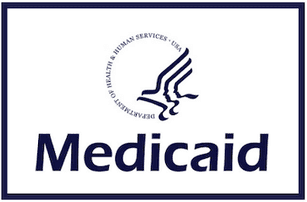


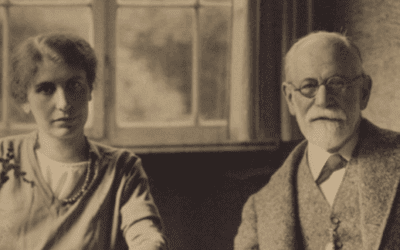
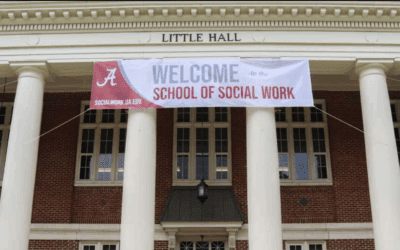





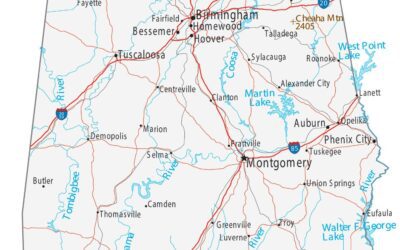
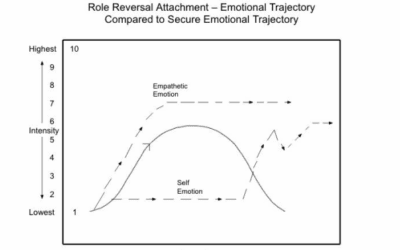




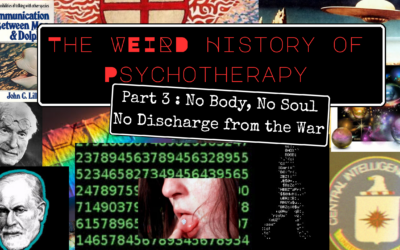


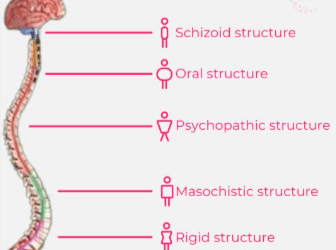


0 Comments